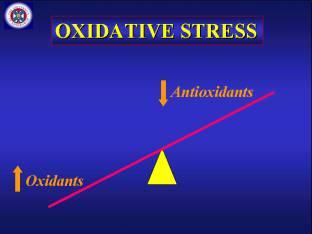The (unexpected) benefits of tea
I am certainly not the sort of person from whom you'd get cleaning tips (or beauty, fashion, or cooking pointers). But in the 'does this woman have nothing better to do?' category, consider this helpful hint for bringing out the best in your wood floors--use tea.
Linda Cobb notes, "They [this would be your floors]love the tannins in tea." Well I know that mine certainly did. A little black tea and a lot of elbow grease the other night at 9:30 p.m., and my kitchen floor was no longer gummy and dull. All that, and then the icky used tea just gets tossed on the garden!
My son thinks I need a life. He's right.
Saturday, April 29, 2006
Thursday, April 27, 2006
The protein-based shakes
I haven't been able to just hop on the highway for over a decade. Even a trip to the airport to pick-up my daughter gives me pause; no pleasure in her visits until after we get off of I-70 and onto city streets. I was interested to discover recently that my fear of driving may be just a matter of unwanted proteins deep in my brain.
Lab rats can be trained to get all hunchy and tense at the sound of a bell if every time the bell rings their cage-floor zaps their ratty little paws. A few shocks later, they need only hear the sound of that bell to hunker down in unhappy anticipation.
Scientists discovered that dosing up the rodents with an antibiotic that blocks the production of protein at the time of training blocks the long-term retention of this bell/shock memory. Those treated rats who are unable to form new proteins no longer react to the ringing bell in a negative way.
Ethically dicey, however, to dose up phobic humans with such nasty chemicals. Fortunately, researchers have discovered that medications such as propranolol that block part of the outflow from the sympathetic nervous system can prevent the activation of the amygdala deep in the human brain that is responsible for permanent installation of fear-based memories. It is possible that using this inexpensive drug at the time of the trauma, or afterwards during therapeutic sessions when the memories are re-activated, may prevent the development of traumatic phobias or PTSD.
I haven't been able to just hop on the highway for over a decade. Even a trip to the airport to pick-up my daughter gives me pause; no pleasure in her visits until after we get off of I-70 and onto city streets. I was interested to discover recently that my fear of driving may be just a matter of unwanted proteins deep in my brain.
Lab rats can be trained to get all hunchy and tense at the sound of a bell if every time the bell rings their cage-floor zaps their ratty little paws. A few shocks later, they need only hear the sound of that bell to hunker down in unhappy anticipation.
Scientists discovered that dosing up the rodents with an antibiotic that blocks the production of protein at the time of training blocks the long-term retention of this bell/shock memory. Those treated rats who are unable to form new proteins no longer react to the ringing bell in a negative way.
Ethically dicey, however, to dose up phobic humans with such nasty chemicals. Fortunately, researchers have discovered that medications such as propranolol that block part of the outflow from the sympathetic nervous system can prevent the activation of the amygdala deep in the human brain that is responsible for permanent installation of fear-based memories. It is possible that using this inexpensive drug at the time of the trauma, or afterwards during therapeutic sessions when the memories are re-activated, may prevent the development of traumatic phobias or PTSD.
Wednesday, April 26, 2006
Tuesday, April 25, 2006
Thirteen years ago, I slid through a stop sign on a snowy morning while driving to work and was hit by a moving van. Traffic was slow, and I had plenty of time to see my future which clearly had my car and that van occupying the same place at the same time. I truly believed I would die.
All the side windows and the back windhshield shattered on collision. Amazingly, the front window and I remained intact; in fact, I was able to drive my car home.
Within months, however, I found myself gasping for breath while driving, convinced that a tumor in my chest was constricting my airway. I could no longer drive on the highway as I'd get dizzy and faint, feeling like my vision was constricting. I had persistent thoughts that the steering wheel would come off in my hands, or that the brakes would not respond to foot pressure. These panic attacks persisted until several sessions of behavioral therapy eased them up. I only now in this past year have returned to highway driving without using anti-anxiety medication. My heart still pounds and my mouth still dries up if I see a large truck come up behind or beside me.
Scientists are now finding out how long-term fear memories are formed, raising hopes that someday they may be able to block the residual effects of traumatic experiences such as PTSD. More tomorrow.
All the side windows and the back windhshield shattered on collision. Amazingly, the front window and I remained intact; in fact, I was able to drive my car home.
Within months, however, I found myself gasping for breath while driving, convinced that a tumor in my chest was constricting my airway. I could no longer drive on the highway as I'd get dizzy and faint, feeling like my vision was constricting. I had persistent thoughts that the steering wheel would come off in my hands, or that the brakes would not respond to foot pressure. These panic attacks persisted until several sessions of behavioral therapy eased them up. I only now in this past year have returned to highway driving without using anti-anxiety medication. My heart still pounds and my mouth still dries up if I see a large truck come up behind or beside me.
Scientists are now finding out how long-term fear memories are formed, raising hopes that someday they may be able to block the residual effects of traumatic experiences such as PTSD. More tomorrow.
Saturday, April 22, 2006

Do you care what this jellyfish is named? He's soon to be part of a catchy ad campaign to catch your brain for a new neuroprotective supplement. See That which makes a jellyfish glow in the deep....
Tuesday, April 18, 2006
Grown up
Was it for this I uttered prayers,
And screamed and cursed and kicked the stairs,
That now domestic as a plate,
I should retire at half-past eight?
Edna St. Vincent Millay
The most common question that busy women bring to their appointments is "Why am I so tired?" The answer generally is, "You do too much and you sleep too little."
Sometimes, however, fatigue is an important sign of illness or depression. How do you measure up in the world of exhaustion? Check out:
The Iowa Fatigue Scale.
Was it for this I uttered prayers,
And screamed and cursed and kicked the stairs,
That now domestic as a plate,
I should retire at half-past eight?
Edna St. Vincent Millay
The most common question that busy women bring to their appointments is "Why am I so tired?" The answer generally is, "You do too much and you sleep too little."
Sometimes, however, fatigue is an important sign of illness or depression. How do you measure up in the world of exhaustion? Check out:
The Iowa Fatigue Scale.
When is it time for antibiotics?
I woke up this a.m. worse than ever, 10 days into this illness. The viral aches of last week and the fever are history. I actually felt better two days ago and tackled a large backlog of laundry and a pile of patient charts. This morning, I could barely tackle the drive to my son's high school and back.
As I tell those of you who come to my office, if you start feeling worse instead of better in the second week of an illness, it may be time for antibiotics for a secondary bacterial infection. My cheeks and upper teeth are throbbing as is the back of my head. I'm taking my own advice and starting Ketek for sinusitis.
I woke up this a.m. worse than ever, 10 days into this illness. The viral aches of last week and the fever are history. I actually felt better two days ago and tackled a large backlog of laundry and a pile of patient charts. This morning, I could barely tackle the drive to my son's high school and back.
As I tell those of you who come to my office, if you start feeling worse instead of better in the second week of an illness, it may be time for antibiotics for a secondary bacterial infection. My cheeks and upper teeth are throbbing as is the back of my head. I'm taking my own advice and starting Ketek for sinusitis.
Sunday, April 16, 2006
"The sadness of defeat arouses the same areas deep in the brain that are active during depression," according to Dr. Jaak Panksepp, a neuroscientist at Washington State University.
Canadian researchers performed functional MRIs of the brain on swimmers who did not make the Olympic team as the athletes watched videos of their failed qualifying races. Not only did areas deep in the brain near the hippocampus show heightened activity--consistent with emotional pain--but the swimmers also demonstrated decreased activity in the premotor cortex, the 'planning' area of the brain in charge of coordinating complex physical activity such as the crawl stroke.
After a 20 minute therapy session, the athletes again viewed the agony of their defeats. This time, however, activity in the parahippocampus or emotional center was subdued while the premotor cortex lit up in a 'let's-get-back-in-the-water sort of way.
Scientists theorize that emotional arousal following a tough loss may interfere with an athlete's future performance.
Canadian researchers performed functional MRIs of the brain on swimmers who did not make the Olympic team as the athletes watched videos of their failed qualifying races. Not only did areas deep in the brain near the hippocampus show heightened activity--consistent with emotional pain--but the swimmers also demonstrated decreased activity in the premotor cortex, the 'planning' area of the brain in charge of coordinating complex physical activity such as the crawl stroke.
After a 20 minute therapy session, the athletes again viewed the agony of their defeats. This time, however, activity in the parahippocampus or emotional center was subdued while the premotor cortex lit up in a 'let's-get-back-in-the-water sort of way.
Scientists theorize that emotional arousal following a tough loss may interfere with an athlete's future performance.
"How do you keep from getting sick?"
As those of you unlucky enough to have had appointments with me last week know, the answer is I don't. For those of you unlucky enough to have this stupid illness, complete with body aches, horrible cough, fever, headache, and congestion, I definitely sympathize.
So far I've: taken enough aspirin to give myself a gnawing pain in the stomach, discovered that Histussin HC cough syrup stops the cough but gives me a wicked migraine, found that Nyquil stops the night-time cough but leaves a morning-long hangover, and thrown the cat's schedule off with my early a.m. visits to the kitchen for hot tea. I managed to be sick through my daughter's entire visit home, so I hack in harmony with those of you who have coughed your way through trips, work presentations, and celebrations.
Today, at last, I'm better. Humbling things these viruses.
As those of you unlucky enough to have had appointments with me last week know, the answer is I don't. For those of you unlucky enough to have this stupid illness, complete with body aches, horrible cough, fever, headache, and congestion, I definitely sympathize.
So far I've: taken enough aspirin to give myself a gnawing pain in the stomach, discovered that Histussin HC cough syrup stops the cough but gives me a wicked migraine, found that Nyquil stops the night-time cough but leaves a morning-long hangover, and thrown the cat's schedule off with my early a.m. visits to the kitchen for hot tea. I managed to be sick through my daughter's entire visit home, so I hack in harmony with those of you who have coughed your way through trips, work presentations, and celebrations.
Today, at last, I'm better. Humbling things these viruses.
Monday, April 10, 2006

Children thrive in packs...of dogs. A US study of nearly 500 babies followed from birth to nearly 7 years old found that those children exposed to 2 or more pets in their early ages were only one-fourth as likely to suffer from allergies, not only to cats and dogs, but also to ragweed and grass.
Did any one check out how well those moms did chasing all those critters?
Saturday, April 08, 2006
 No news to you: hospitals are a dangerous place to be sick. They are a hot bed of resistant bacteria, carried (research suggests) to your bedside on your doctors' ties, beepers, cell phones, or jewelry. In addition, the doctor you see may not even be your own personal physician. Is this a problem? Check out:
No news to you: hospitals are a dangerous place to be sick. They are a hot bed of resistant bacteria, carried (research suggests) to your bedside on your doctors' ties, beepers, cell phones, or jewelry. In addition, the doctor you see may not even be your own personal physician. Is this a problem? Check out:Your Friendly Family Hospitalist?
For more smiles from odd signage, check out: silly signs
Tuesday, April 04, 2006

Who'd heard'a Hoodia?
Not me until I received an e-mail today asking me what I thought of it. A little research indicates this may be the real diet deal.
Leslie Stahl of CBS news described it as "a small spiky pickle." This little cactoid plant which grows wild in the Kalahari desert has been used as food for centuries by the San bushmen. South Africa's Council for Scientific and Industrial Research proved what the Bushmen already knew: the plant species Hoodia gordonii squelches the appetite, leading to decreased caloric intake and weight loss with continued use.
Scientists have isolated the active ingredient which they nicknamed P57 (short for P57AS3). Injections of P57 deep into rat brains leads to an increased content of ATP in the hypothalamus. This primitive brain structure that sits straight back from the eyes right between the ears is known to regulate appetite. Researchers theorize that "ATP may be a common currency of energy sensing." In other words, if you've got a hypothalamus brimming with ATP, your brain sends out signals that you're set for energy. No further muffins needed!
Sunday, April 02, 2006
Oxidative stress

You do NOT want to get on this seesaw, and yet you do after every big, high-fat meal.
Dr. Helmut Sies (current president of the Oxygen Club of California!) notes the obvious: "In Western societies, a significant part of the day is spent in the postprandial state." In other words, if most of us aren't eating, we just ate. Great gobs of unsaturated fatty acids (hyperlipidemia) and too much sugar (hyperglycemia) travel through the bloodstream like gangs of prooxidant thugs, assaulting our blood vessels, rendering them stunned and constricted.
The whole mess adds up to postprandial oxidative stress: excess oxidative load vs. a weakened antioxidant network. But Dr. Sies does not leave us hopeless and hungry, but rather assures us that we can attenuate the biological warfare after meals by taking dietary antioxidants with our high-fat meals.
Drink red wine with your Big Mac as the polyphenols from wine, cocoa, or tea improve blood vessel function and lower the tendency of LDL-cholesterol to oxidize. And throw down an antioxidant supplement such as an E, C, or selenium with your chocolate mousse.
For more information, see:
A potentially lethal meal deal.
Subscribe to:
Posts (Atom)

